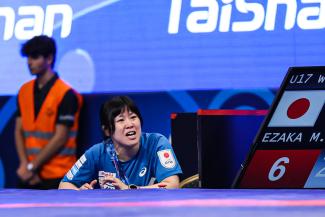Wrestling Key Player in ASOIF's 'Women Lead Sports' Programme
Tuesday, May 18, 2021 - 20:12 By United World Wrestling Press

Led by UWW Development Director Deqa Niamkey, wrestling and its development team played a key role in fulfilling ASOIF's mission to provide classes and leadership opportunities to female leaders in sport looking to "strengthen their self-confidence and acquire important skills to influence, negotiate, communicate, navigate politics, manage stakeholders and lead in male-dominated environments"
A snippet from the ASOIF article:
During the last two months, more than 60 future women leaders from ASOIF’s member federations successfully completed a series of virtual live-coaching sessions, aimed at preparing them to serve in elective positions of their respective International Federation (IF), Continental Association or National Federation.
The “Women Lead Sports” online masterclass, run by professional coach Gabriela Mueller, was created to help increase the number of women in leadership positions across the Olympic Movement. Amongst others, participants learn how to strengthen their self-confidence and acquire important skills to influence, negotiate, communicate, navigate politics, manage stakeholders and lead in male-dominated environments. They also receive personalised coaching, helping them to define their next strategic steps. The course tailored to ASOIF’s member federations was adapted to the current reality of the COVID-19 pandemic, with congresses and elections taking place in different formats and requiring strong skills in digital communication. Senior women leaders joined certain sessions to share their experience, provide advice and inspire.
“The programme was a swift and effective response to prepare an equal future in a COVID-19 sports world and thereafter”, said Gabriela Mueller. “Even though in many cases the pandemic has been gender-regressive across several sectors, the online masterclass empowers women to run campaigns, get elected and lead.”
Full story on the ASOIF website, here


Share your thoughts.
Comments